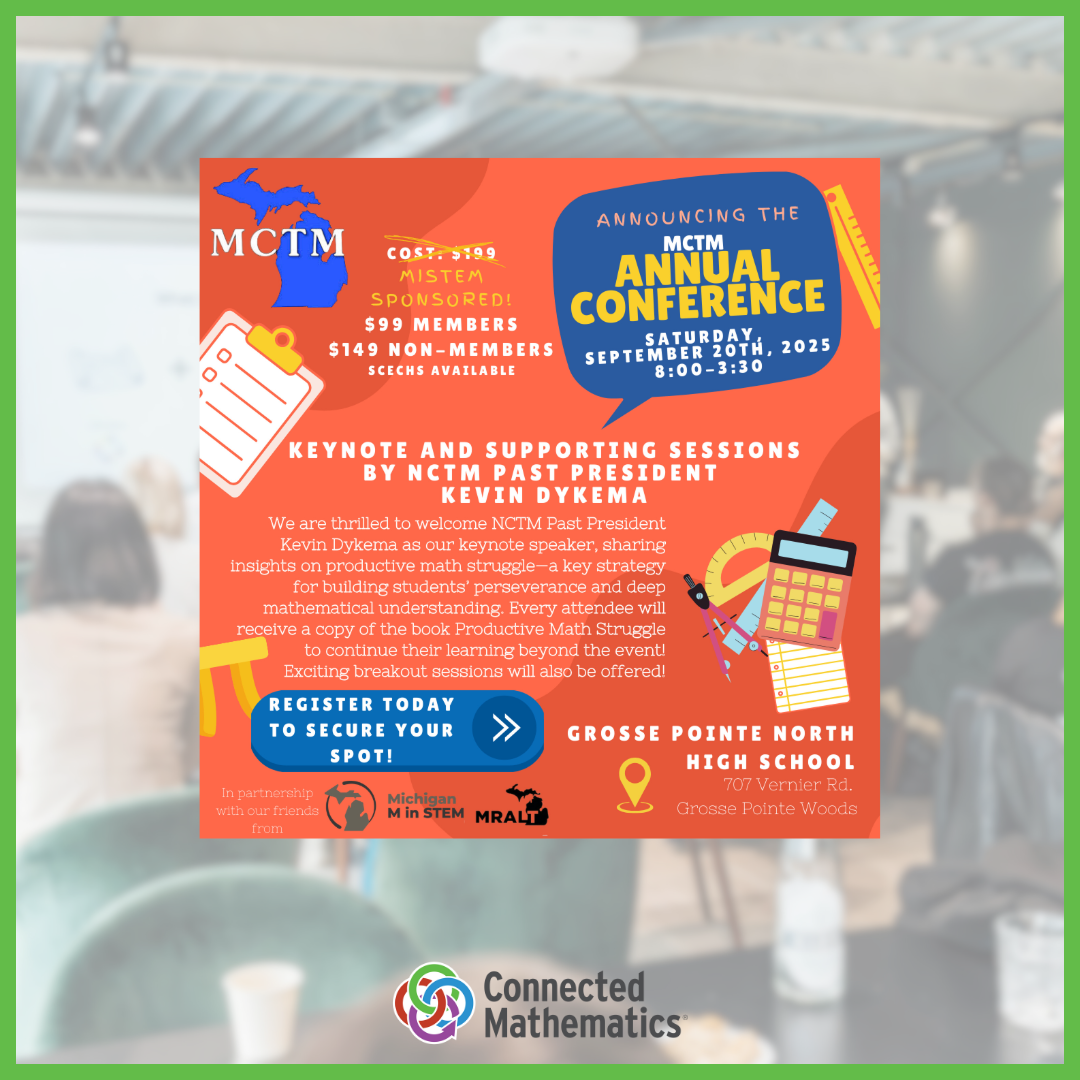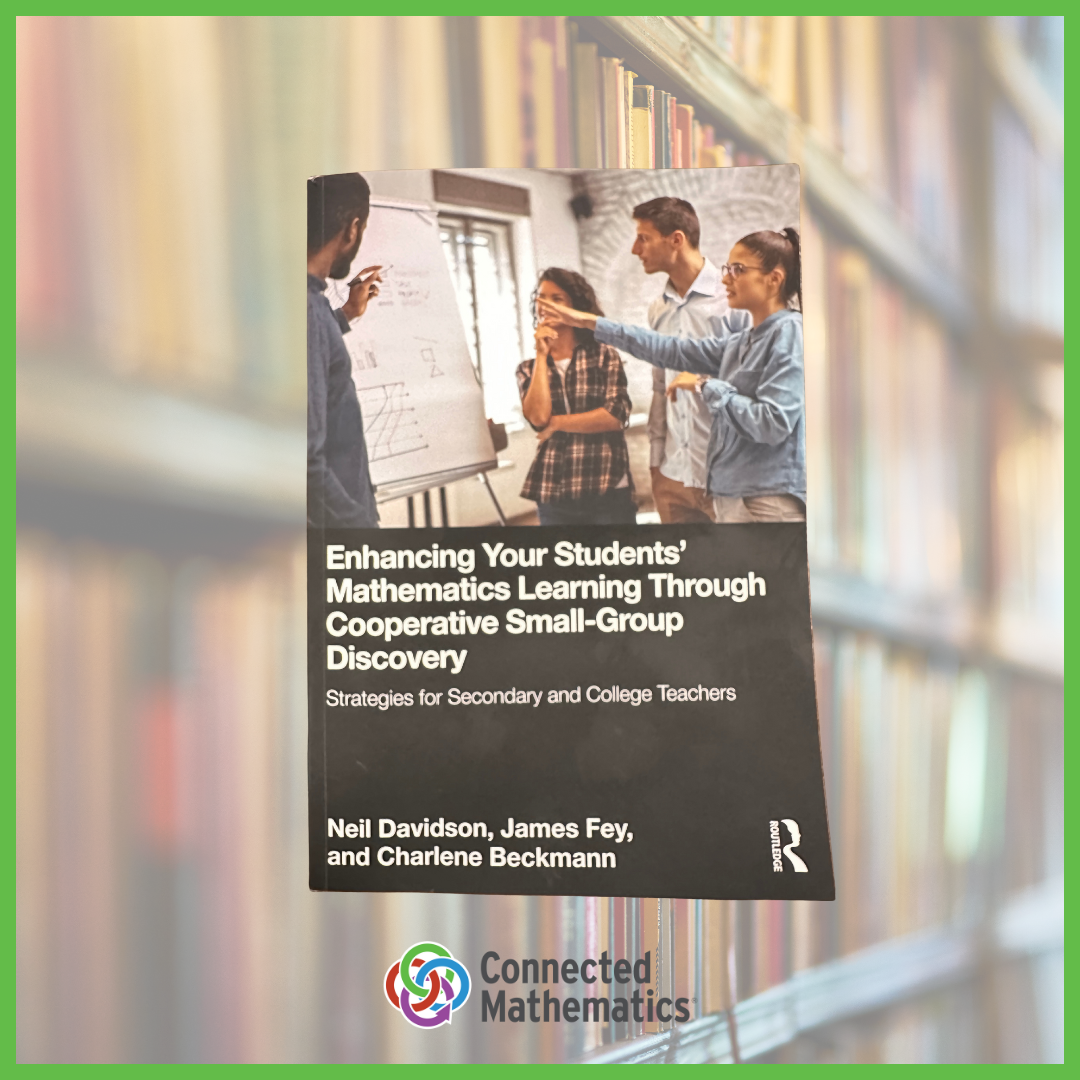Teach CMP4 in a Digital Collaborative Environment for Students and Teachers
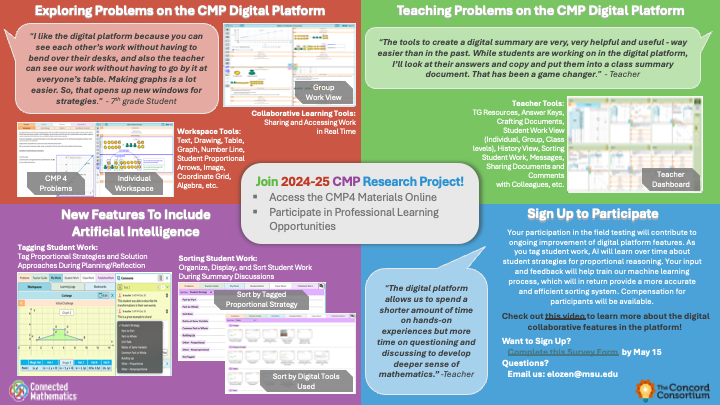
You are invited to participate in a study to enhance students’ individual and collaborative engagement in learning mathematics by a digital collaborative platform. Currently the CMP Digital Collaborative Platform contains all Grade 7 CMP4 Field-Test Units. We are exploring the use of artificial intelligence to help organize, display, and sort evidence of student thinking during summary discussions. The cost is free to schools. Teachers are eligible to receive a stipend.
Note: Limited spots are available for the 2024-2025 school year. Please sign-up to indicate your interest in participating in the project by May 15, 2024.
Funded by the National Science Foundation, this design research project is a partnership between Connected Mathematics Project (CMP) at Michigan State University and the Concord Consortium.
Overview of the Digital Collaborative Platform
Student Features
- Investigate mathematics using a new CMP STEM Problem format that is embedded in the platform and supports students as doers, knowers, creators, and communicators of mathematics
- Develop mathematics with a variety of tools in a safe and collaborative setting – graphs, tables, text, drawing, images, etc.
- Students can document, share, refine, publish, curate, and retrieve their work –work moves back and forth between individual and shared spaces
- Extend learning of mathematics concepts by transforming their work into sharable and retrievable classroom artifacts for future use and reflection in a mathematics learning log
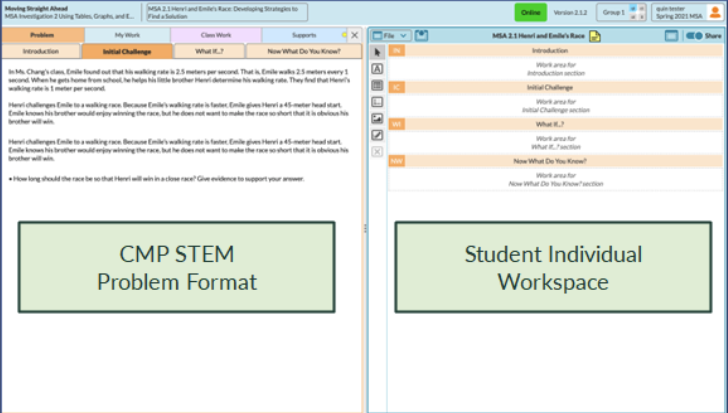
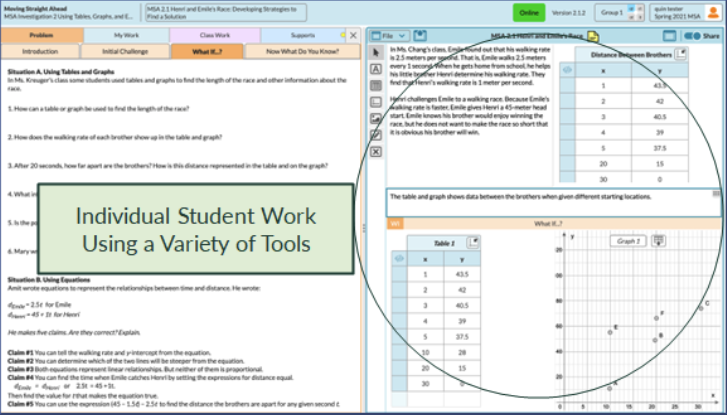
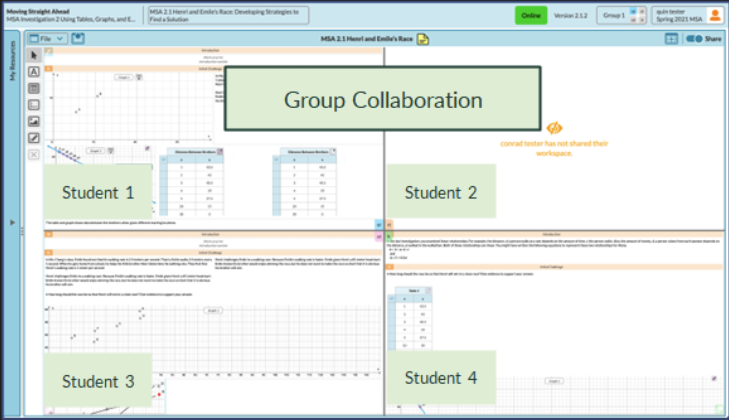
Teacher Features
- Access curriculum materials including student, teacher guide, and solutions.
- Monitor evidence of student thinking from individuals, groups, or the entire class in real-time or after school
- Select, highlight, edit, and incorporate individual student work into the class workspace
- Create and send “just-in-time” supports to individual, group, and classes of students
- Collaborate with teacher colleagues and school coaches to create resources, collaborate in the digital environment, and support each other in planning, teaching, and reflecting
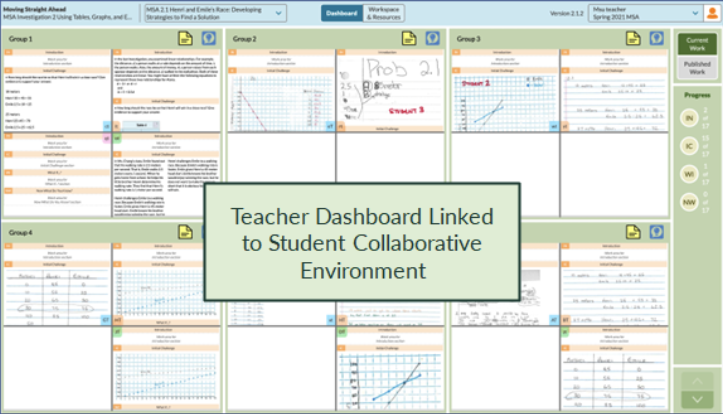
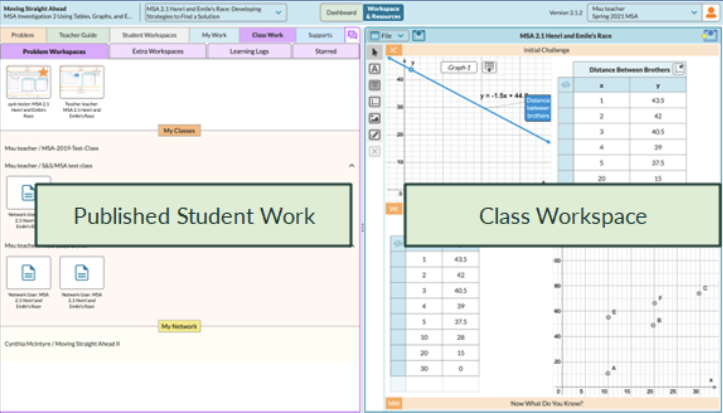
What Does it Mean to Participate?
By participating in the research project, you will receive online access to the CMP4 Grade 7 field-test materials (Student Edition, Teacher Edition) and participating in professional learning with other teachers. Assessments are paper-and-pencil. Participating teachers are eligible to receive a stipend.
Participating teachers are expected to:
- Teach one or more of the Grade 7 CMP4 field-test units
- Assist with obtaining commitment and research permissions from school administration and parents/guardians to support your efforts
- Have access to a classroom set of laptops (Chrome, Mac, or Windows) and reliable WiFi
- Engage in the design and feedback of the new features for artificial intelligence
- Assist with the identifying proportional reasoning strategies from student digital work
- Allow the research team to potentially observe your class for select problems and conduct student interviews and digital surveys (Note: This may not occur in every school/class)
- Provide feedback via virtual interviews, digital surveys, and virtual professional learning on the planning, teaching, and reflection of problems using the CMP Digital Platform
Apply by May 15, 2024 to participate in this research project. Accepted candidates
will be notified in early June.
Please feel free to invite other math teachers in your department or your district!
Questions? Contact Elizabeth “Billie” Lozen at elozen@msu.edu


